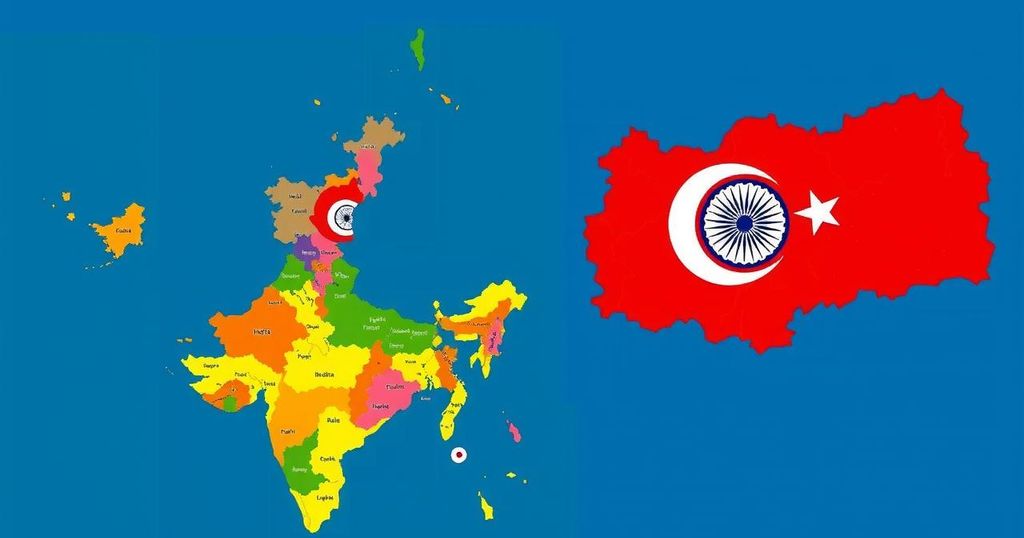Turkey’s Membership Bid to BRICS Denied by India

Turkey’s BRICS membership bid was rejected by India due to Turkey’s strong ties with Pakistan, preventing the necessary consensus for admission. The group has decided against expanding its membership at this time, following a historical trend to amplify developing nations’ influence in global politics.
Turkey’s attempt to join the BRICS organization has been thwarted following India’s rejection of its membership application. The primary reason cited for this decision was Turkey’s close relationship with Pakistan, which was deemed a significant factor in the consensus needed for Turkey’s acceptance. Reports from various media outlets, including Duvar English and BILD, indicate that the BRICS member states, during their recent summit, chose not to admit any new members at this time, reaffirming their current composition. Turkey’s application for BRICS membership was officially submitted on September 2; however, it faced hurdles due to the geopolitical dynamics within the group. As per various expert analyses, several members expressed concerns about expanding the bloc further, ultimately leading to the consensus that there would be no immediate expansions within BRICS. The BRICS group originates from the collaboration of Brazil, Russia, India, and China, which began in 2006, aimed at providing a platform for emerging economies in global governance. South Africa’s addition in 2011 transformed it from BRIC to BRICS. The organization seeks to amplify the voice of the global South and East in international diplomacy and advocate for reforms in crucial institutions such as the International Monetary Fund and the World Bank.
The BRICS consortium was created as a strategic initiative for emerging economies, aiming to foster cooperation and influence among developing nations. The organization currently comprises Brazil, Russia, India, China, and South Africa. Membership applications like Turkey’s reflect an ongoing interest from various countries to align with BRICS in order to boost their global influence and diversify their foreign relations amidst a shifting geopolitical landscape. Recent expansions have included nations such as Iran and Egypt, highlighting BRICS’s role as a platform for countries seeking alternative alliances away from Western hegemony. However, the internal dynamics, notably India’s strategic objections concerning Turkey’s relations with Pakistan, pose significant barriers to future enlargements, thereby emphasizing the nation’s foreign policy complexities in regional alliances.
In summary, Turkey’s bid to join BRICS has been unsuccessful due to India’s rejection, which highlights the complexities of international relations and the importance of member consensus in multilateral organizations. As BRICS continues to represent the interests of developing countries, Turkey’s application reflects the broader aspirations of nations seeking to strengthen their global stance. Nonetheless, the current political landscape reveals that consensus among existing members is paramount, and expansions may not be forthcoming in the near future.
Original Source: www.duvarenglish.com








